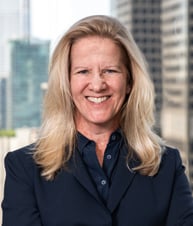California is in the middle of a housing supply and affordability crisis of historic proportions. Last week, Governor Gavin Newsom signed Senate Bill 9 and Senate Bill 10 into law. These bills proposed changes in state law that are meant to help alleviate this shortage of affordable housing by allowing for increased density in single-family zoned areas. The theory, supported by proponents of the bills, is that by adding new market-rate units to the community that a middle-class family can afford, SB 9 and 10 will free up less-expensive units for lower-income families. However, many local agencies, including the city council for the City of Los Angeles, opposed this “trickle down” theory, claiming that the bill will do the opposite of what it is intended to do.
Senate Bill 9
SB 9 requires a local agency to ministerially approve, without discretionary review or hearing, a lot split and proposed housing developments on the resulting lots containing no more than two residential units each. If certain requirements are met, a local agency would be deprived of any discretion to disapprove of a project unless the project threatened public health and safety. Because projects under this bill are approved by a ministerial process, they are exempt from the California Environmental Quality Act (CEQA) process. The practical effect of this bill will be to allow two duplexes on a single lot in zones that previously only allowed for single-family homes.
The bill severely limits a local agency’s authority to disapprove of a project, but still allows cities to impose objective zoning, subdivision, and design standards so long as those standards would not have the effect of physically precluding the construction of the project. SB 9 attempts to protect renters from displacement by prohibiting the demolition of existing affordable housing, rent-controlled housing, or housing leased to a tenant in the last three years. The bill also requires the applicant homeowner to live in one of the units for three years from the time they receive approval to split their lot, in an attempt to prevent investors and developers from coming in and buying up properties to take advantage of this change in the law.
Senate Bill 10
SB 10, while less restrictive of local agencies’ authority, still has the potential to create a substantial impact on single-family neighborhoods. The bill creates a voluntary process for local governments to access a streamlined zoning process for new multi-unit housing near transit or in urban infill areas, with up to 10 units per parcel. The legislation simplifies the CEQA requirements for upzoning, giving local leaders another tool to voluntarily increase density and provide affordable rental opportunities in California. The bill’s author, Senator Scott Wiener, stated, “SB 10 provides one important approach: making it dramatically easier and faster for cities to zone for more housing. It shouldn’t take five or 10 years for cities to re-zone, and SB 10 gives cities a powerful new tool to get the job done quickly.”
Impact of the New Laws
Proponents of both bills say that the new laws, by allowing homeowners to split and sell their lots, will increase homeownership opportunities for those previously locked out of the market. According to an analysis by the Terner Center, SB 9 will enable the creation of an estimated 700,000 more buyable units in the state’s existing neighborhoods. However, opponents claim that the bills will be the end of single-family homes and neighborhoods as we know it. Because the laws will affect nearly 7 million California homeowners in single-family neighborhoods, opponents argue that voters deserve a voice on this elimination of single-family zoning.
Opponents of the bills further argue that because the laws don’t require that any units be affordable or capped at a certain price, they will only benefit wealthy people and developers. The only group of people with the means to undertake the projects promoted by SB 9 and 10, opponents claim, are the wealthy who merely intend to rent out the new units at market rates. Opponents worry that SB 10 will incentivize developers to pour money into council elections to elect candidates who will rezone residential properties for higher-density housing. In a statement slamming the bills before they were signed, Los Angeles city council member Paul Koretz warned of the environmental and social costs: “These bills do nothing to help solve homelessness, nothing to build workforce housing or address any of the real shortages of affordable housing, and would make developers and investors richer in the process. … [T]hey will drive up the cost of real estate by de facto up-zoning most properties and decimating environmental review.”
